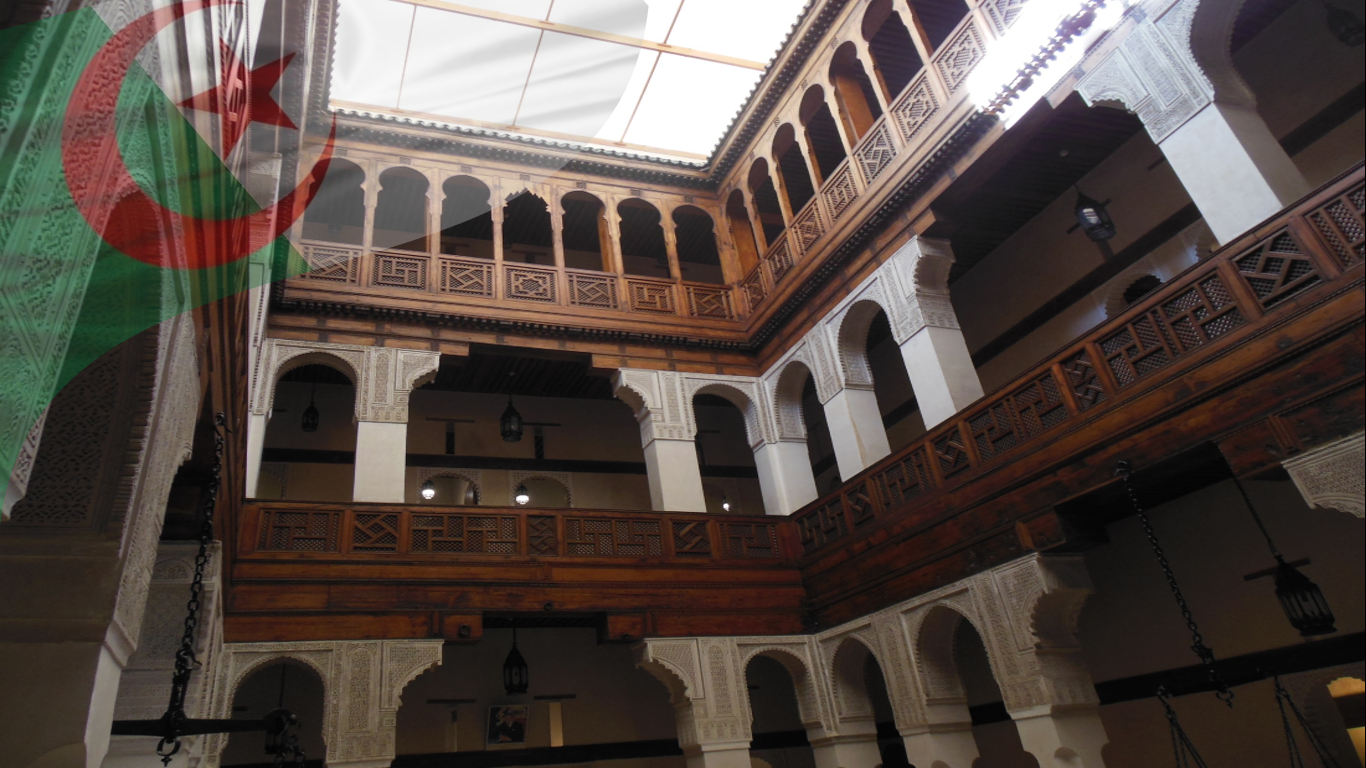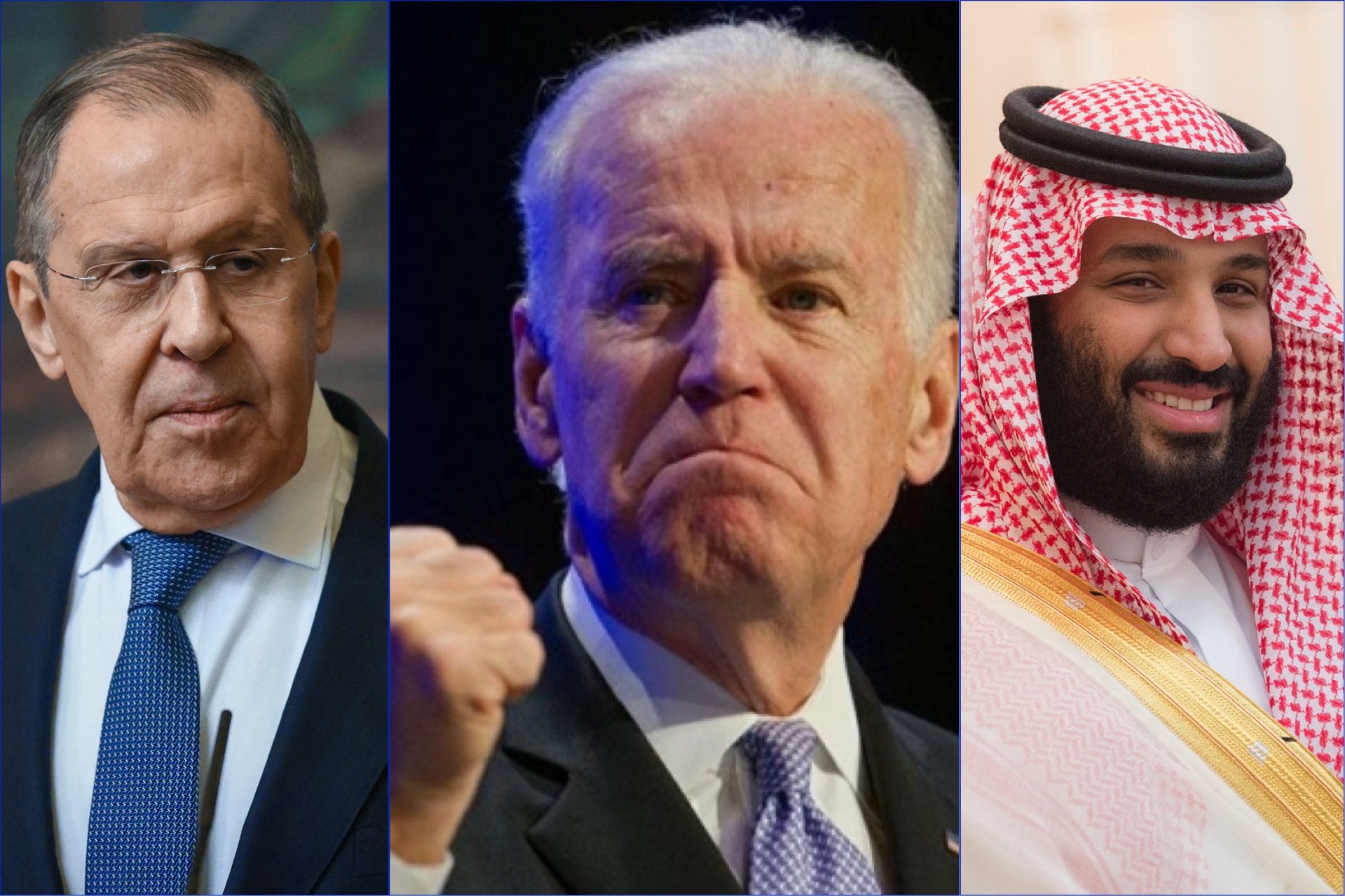Since the war in Ukraine started we have dealt in depth with the surprising developments that despite the expectations most of the Gulf states did not side with the U.S. against Russia. They refused to increase energy production, thus not willing to compensate for the loss of Russian energy output, especially for Europe, which was a main for Washington. Surprising as it was, even Saudi Arabia was clear on its position not to deviate from the OPEC+ group’s annual plan.
The matter so far led to a very cold relationship between Riyadh and Washington, which showed how badly the situation deteriorated between the Gulf and the Americans since Trump left office. So far the most significant was the position of both the Emirates and Saudi Arabia, even refusing to directly engage with President Biden or to receive a visit from either him or Secretary Blinken, while at every stage conferred with Moscow.
The question was how far this resistance can go, as given the dependence of the Gulf states on the U.S. politically and militarily it seemed inevitable to see them finally buckle under pressure.
And finally this week two signs came that the white smoke is finally in the air. Western, especially American sources jubilantly announced that Riyadh agreed to increase oil production and put the markets at ease. Finally, Europe could see the end of the long energy crisis tunnel that eventually after increased American pressures Saudi Arabia will come to their rescue.
However, once again the devil is in the details. Because following the good Mediterranean tradition, words do not necessarily mean action, or at least not the way it is expected.
The great news
This week two sudden, though long-awaited news signaled that Riyadh finally buckled under pressure and is ready to bow to the American demands. On 3 June it was reported that President Biden will visit Saudi Arabia sometime in June. In clear American fashion, the news was put forward with skepticism and feigned surprise, as it was a major step from Biden to meet the Saudi leadership, which he initially wanted to make a “pariah” in international politics.
Yet in fact, this step is not only understandable in light of the growing need to compensate Europe for the loss of Russian supplies, and thus enforce newer and newer European sanctions, but had been attempted before. Biden wanted to take this road at the very beginning of the Ukrainian crisis, only to be refused both by Riyadh and Abū Zabī. Secretary Blinken also attempted this regional journey, which was announced, only to be refuted a day later by Riyadh announcing no such visit will come in the near future. In March following the same pattern British Prime Minister Boris Johnson visited both Abū Zabī and Riyadh, only to face a shockingly cold and unsuccessful reception. So the surprise, if there is any, is much more on the Saudi side. Why do they agree now?
This development was tied to the jubilant report by many American and pro-American outlets from a day before that Saudi Arabia finally agreed to increase oil output and compensate for the loss of Russian supplies. It was put in the context that only by increased output did Biden agree to change his policy not to engage the Saudi leadership and agreed to travel to Riyadh, which was a specifically strong desire of the Saudis.
So it seemed that Saudi Arabia will deviate from the OPEC+ plan, possibly leading the way for other Gulf states to join and turn to Moscow. But has this really taken place? Once again, the timing and the context are telling another tale.
The Russian-GCC meeting in Riyadh
Though the overall Western news coverage was celebrating that Saudi Arabia would finally come to the rescue of the global markets, a thing that was expected and demanded since early March there is a very clear question: Why now? Do the Saudis really want to convince Biden so desperately to follow up on the previous relationship with Trump? Do the Saudis fear Washington, or Biden himself so much? Do they really need Washington’s support so greatly? The last few months suggested a clear “no” to the latter questions, though we have supposed earlier that this might be a high-stakes gamble on Riyadh’s behalf to increase the toll of participation in the Western sanctions against Russia. That, however, does not answer why now it all happened.
It attracted much less attention, but on Tuesday, May 31 Russian Foreign Minister Sergei Lavrov arrived in the Saudi capital to take part in the GCC states’ foreign ministers’ annual summit. This was part of a regional tour, and in Riyadh Lavrov held extensive negotiations with a number of global Arab and Islamic organizations, the Saudi Crown Prince and other state officials, and finally his GCC colleagues. Following the one-day summit Saudi state channel al-Arabiyya quoted Lavrov saying: “The Gulf states will not join the sanctions imposed on us”.
It seems therefore quite contradicting why the Western press celebrated a Saudi turn. It can be argued that the real result is some sort of middle ground, as the GCC states agreed not to join the sanctions, for which in exchange Moscow “forgives” these states for increasing their output. But the Gulf states never even hinted at a desire to join the sanctions. On the contrary, in the last two-three months, they even expanded their ties with Moscow. It is also remarkable that while so far Biden and Blinken were refused a visit and Boris Johnson was turned down with his wishes, to this meeting they invited the Russian Foreign Minister. Such GCC meetings are usually very formal, especially of the rift between Qatar and the Emirates, and rarely do any other parties take part in it. Suggesting that this was deliberately to be a joint consultation between Russia and the Gulf.
Looking at more objective reports, it is clearly visible that it was not Saudi Arabia that unilaterally agreed to increased production, but the OPEC+ group vowed to increase its annual quota. And Russia is a very significant member of the club. The decision was clearly not only taken with its full knowledge but even after consultations with it. Reports also point out that what really happened is that the OPEC+ statement “merely mentioned reopening from COVID-19 lockdowns in “major global economic centers”. Yet there are serious complications with execution, as there are problems with maintenance, delivery, and the reopening of supply centers.
So while the promise is still very questionable, it is clear that it is not against Russia’s plans, and definitely not “behind its back”, as many Western assessments hinted. It should also be pointed out that this is not the first time to report such a development, in March it was published that Aramco will increase its production, yet not much came of it. Also recently Saudi Foreign Minister Fayṣal ibn Farḥān recently at Davos rebuffed a possible increase stating that “Saudi Arabia did what it could”, but also downplaying the matter not expecting an immediate energy shortage. We should not forget that recently we saw similar duplicity by Qatar, when it signed a new supply deal with Germany, knowing full well that even if it goes through, it will be too late to solve the current crisis. Finally, it is also interesting that the OPEC+ and the following Saudi statements suggested that an increase will happen “in case there is a shortage”.
Will Biden visit?
We should point out that while the Western outlets are heavily debating Biden’s upcoming visit to Riyadh, that same news hardly moved Middle Eastern or Saudi sources. And based on the developments of the last few months, it seems wiser to wait until the journey in fact manifests, as it would not be surprising to see it called off eventually.
But let us suppose it will take place. Why has Riyadh agreed to it? What does the signal for increased energy output suggest? And what can Biden expect?
Looking back to the events of the last three months it is clear that Washington wanted this meeting to put up more immediate pressure, so the Gulf led by Saudi Arabia join the sanctions against Russia, or at the very least play along and solve the current European energy crisis.
This is not in the immediate interest of Riyadh, as energy prices are skyrocketing on the global markets after two years of record downfall due to the Corona pandemic. But the meeting is still important for three key matters from Riyadh’s point of view.
The first, which is regularly mentioned in the news now as a sort of exchange for Saudi compliance, is the peace process in Yemen. This is a key matter for Riyadh to finally end this costly and by now totally pointless engagement. That is why the rapprochement with Iran started and still goes along with positive signs, but Tehran hasn’t changed its key position so far. And it is not expected to do so, as its bridgehead in Yemen is a key asset. So the Saudis need American support to either enforce and endorse a settlement or to help turn around and greatly increase military support helping the Saudis carve out a much better settlement.
The second question is very much attached to this, the Iranian nuclear deal. As we saw recently, Riyadh is ready to green-light the revival of the JCPOA. That is part of the rapprochement package with Tehran, but Riyadh wants reassurances so that Tehran would not be able to exploit its growing influence later on. So far all these requests fell on depth ear in Washington. This made Riyadh turn more towards Russia, as the cooperation between Moscow and Tehran is good and growing in a number of cases.
The last matter is the recent project led by Jared Kushner, Trump’s son-in-law and former main Middle East advisor. Under his guidance, there is a prospect of major Saudi investments in Israel. Tel Aviv publicized this as the entrance to normalization between the two-state, but it is far from being so clear. The deal currently awaits approval from the Biden administration.
Much can still happen until finally, Biden reaches the royal palaces in Riyadh. But whatever happens until then, Biden will have to make heavy sacrifices, finally abandoning his quest to change leadership in Saudi Arabia, and give support in a number of cases so far was unwilling to do., and has to give immunity to the Saudi Crown Prince. And surely the Saudi leadership, especially the Crown Prince will see great joy in breaking Biden’s arrogance towards him. And even with these concessions, it is not completely sure that Saudi Arabia would make great favors. So the gamble goes on, as Riyadh clearly feels that its demands are finally heard in Washington.
There is not much for the Biden administration to celebrate here. Was it so, we would have seen congratulating statements by the State Department, not vitriolic criticism, putting Saudi Arabia on the same line as China and Afghanistan.


